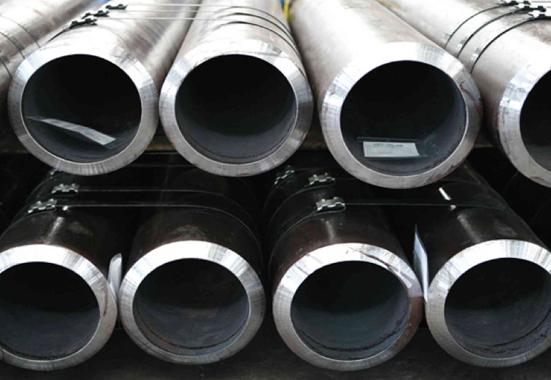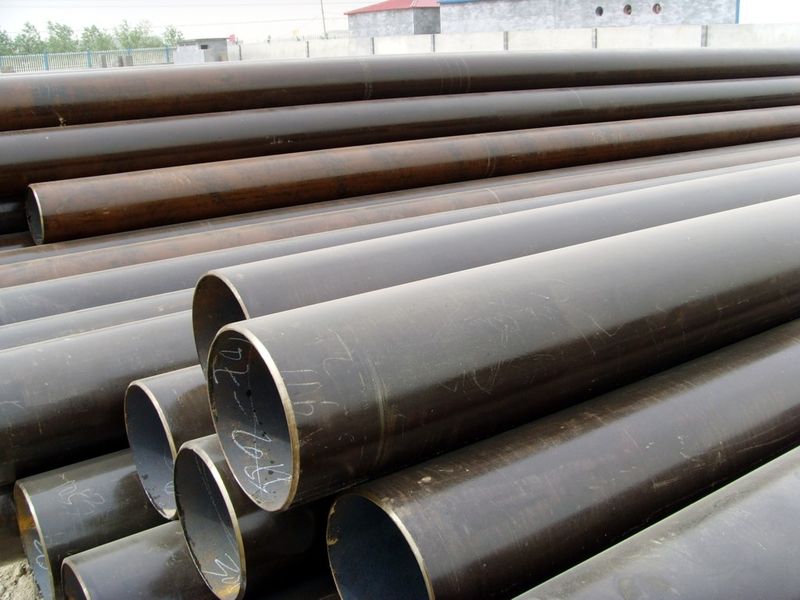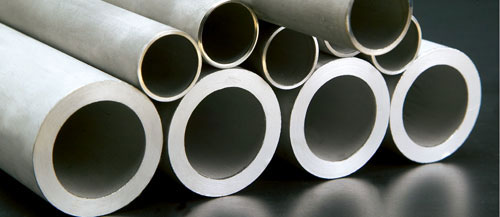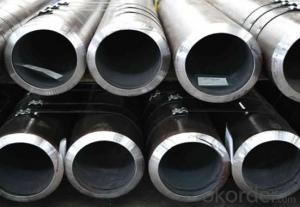Seamless Steel Pipe of Top Supplier
- Loading Port:
- Qingdao
- Payment Terms:
- TT or LC
- Min Order Qty:
- 2000 PCS
- Supply Capability:
- 30000 PCS/month
OKorder Service Pledge
OKorder Financial Service
You Might Also Like
OKorder is offering high quality Seamless Steel Pipe at great prices with worldwide shipping. Our supplier is a world-class manufacturer of steel pipe, with our products utilized the world over. OKorder annually supplies products to European, North American and Asian markets. We provide quotations within 24 hours of receiving an inquiry and guarantee competitive prices.
Product Applications:
Seamless Steel Pipe is ideal for long distance oil, gas, and natural gas pipelines on land and offshore. They can also be applied in construction projects, offshore platforms, power stations, the petrochemical industry and municipal construction.
Product Advantages:
OKorder's Steel Pipe is durable, resists corrosion and is recyclable.
Main Product Features:
· Premium quality
· Prompt delivery & seaworthy packing (30 days after receiving deposit)
· Corrosion resistance
· Professional Service
· Competitive pricing
Product Specifications:
Standard: ASTM A106, ASTM A179, ASTM A192, ASTM SA213/A519, DIN1629/EN10216-1, DIN17175/EN10216-2, DIN 2391-1, API SPEC 5CT
Certification: MTC, ISO, API
Dimensions:
Nom. Thickness: 14mm – 325mm (Sch5s to XXS)
Wall Thickness: 1mm – 80mm
Length: 20'' – 24''
Packaging: Bundle, beveled or plain end, varnish, PVC end caps
FAQ:
Q1: Why buy Materials & Equipment from OKorder.com?
A1: All products offered byOKorder.com are carefully selected from China's most reliable manufacturing enterprises. Through its ISO certifications, OKorder.com adheres to the highest standards and a commitment to supply chain safety and customer satisfaction.
Q2: How do we guarantee the quality of our products?
A2: We have established an advanced quality management system which conducts strict quality tests at every step, from raw materials to the final product. At the same time, we provide extensive follow-up service assurances as required.
Q3: How soon can we receive the product after purchase?
A3: Within three days of placing an order, we will begin production. The specific shipping date is dependent upon international and government factors, but is typically 7 to 10 workdays.
Q4: What makes stainless steel stainless?
A4: Stainless steel must contain at least 10.5 % chromium. It is this element that reacts with the oxygen in the air to form a complex chrome-oxide surface layer that is invisible but strong enough to prevent further oxygen from "staining" (rusting) the surface. Higher levels of chromium and the addition of other alloying elements such as nickel and molybdenum enhance this surface layer and improve the corrosion resistance of the stainless material.
Q5: Can stainless steel rust?
A5: Stainless does not "rust" as you think of regular steel rusting with a red oxide on the surface that flakes off. If you see red rust it is probably due to some iron particles that have contaminated the surface of the stainless steel and it is these iron particles that are rusting. Look at the source of the rusting and see if you can remove it from the surface.
Q6: What is the difference between galvanized steel and galvalume steel?
A6: Galvanized steel is metallic coated with Zinc in various coating weights. Minimum recommended for painted metal roofs is G90. Galvalume is a zinc and aluminum coated steel that becomes an alloy and is recommended in either painted or bare applications with a minimum coating weight of AZ50. Galvalume has an excellent performance life in bare exposures. Hence if you are using a bare panel use galvalume and if painted use either.
Q7: Is there a difference in thermal conductivity between stainless steel and steel?
A6: Yes. Stainless Steel has a lower thermal conductivity rate than steel; approximately 1/3 to 1/5th depending on the material.
Q8: Is there a difference in electrical conductivity between stainless steel and steel?
A8: Yes. Steel is generally more conductive than stainless steel. Steel has resistivity in the range of 10~20Ωm, while stainless has a resistivity of approximately 60~72Ωm.
Images:



- Q:What are the advantages of using steel pipes over other materials like PVC or copper?
- There are several advantages of using steel pipes over other materials like PVC or copper. Firstly, steel pipes are extremely durable and can withstand high pressure and extreme temperatures, making them ideal for various applications including industrial and underground use. Secondly, steel pipes have a longer lifespan compared to PVC or copper, reducing the need for frequent replacements and maintenance. Additionally, steel pipes are more resistant to corrosion and are not prone to cracking or leaking, ensuring a reliable and leak-free plumbing system. Lastly, steel pipes have a higher fire resistance rating compared to PVC, making them a safer option for certain environments.
- Q:How are steel pipes used in plumbing?
- Steel pipes are commonly used in plumbing applications due to their durability, strength, and resistance to corrosion. They are used to transport water, gas, and other fluids from one place to another in a plumbing system. Steel pipes are often found in underground water supply networks, as well as in buildings for conveying hot and cold water, drainage, and venting systems. Additionally, steel pipes are also utilized for connecting fixtures, such as sinks, showers, toilets, and appliances, ensuring a reliable and long-lasting plumbing infrastructure.
- Q:What is the outer diameter of the steel tube?
- The diameter of a steel pipe refers to the diameter of the steel pipe. The specifications of the steel tube is normal with diameter (diameter and thickness) said, for example 100MM outer diameter and wall thickness of 5MM tube is marked with 100*5.
- Q:What is a tight steel tube?
- JDG pipe is the replacement of traditional PVC and SC pipes and other traditional wire conduits. It is a breakthrough in the field of building electrical field using new materials and technologies. The JDG pipe adopts the cross connecting ground wire of galvanized steel pipe and thin-wall steel pipe, overcomes the defects of complicated construction and large construction loss of common metal pipe, and solves the problems of poor fire resistance and difficult grounding of PVC pipe. Because the JDG pipe material is more expensive than the ordinary pipe material, it is more used in the construction, such as comprehensive wiring, fire protection wiring and so on.
- Q:What are the common applications of steel pipes?
- Steel pipes have a wide range of common applications in various industries including oil and gas transportation, plumbing systems, structural support in construction, irrigation systems, and industrial processes such as water and wastewater treatment.
- Q:What are the different methods of repairing steel pipes?
- There are several methods for repairing steel pipes, including welding, pipe wrapping, pipe lining, and pipe bursting. Welding involves fusing the damaged sections of the pipe using heat and pressure. Pipe wrapping involves using a fiberglass or epoxy resin wrap to reinforce and seal the damaged areas. Pipe lining involves inserting a new pipe into the damaged one, creating a seamless and corrosion-resistant inner lining. Pipe bursting involves replacing the damaged pipe by using a bursting head to break it apart while simultaneously pulling a new pipe into place. The choice of method depends on the nature and extent of the damage, as well as other factors such as cost and accessibility.
- Q:How are steel pipes marked for identification?
- Steel pipes are typically marked for identification using various methods such as color coding, stenciling, engraving, or applying tags with relevant information such as size, grade, manufacturer, and specifications.
- Q:What is the role of steel pipes in the transportation of chemicals?
- The role of steel pipes in the transportation of chemicals is to provide a strong, durable, and corrosion-resistant conduit for safely moving various types of chemicals from one location to another. Steel pipes are known for their high strength and ability to withstand high pressure, making them suitable for handling hazardous or aggressive substances. Additionally, the smooth interior surface of steel pipes minimizes friction, allowing for efficient and continuous flow of chemicals. The steel material is also resistant to chemical reactions, ensuring the integrity and purity of the transported substances. Overall, steel pipes play a crucial role in ensuring the safe and efficient transportation of chemicals, protecting both the environment and human health.
- Q:How are steel pipes used in bridge construction?
- Steel pipes are commonly used in bridge construction as piling or foundation elements. They are driven into the ground to provide support and stability to the bridge structure. Additionally, steel pipes can be used as structural members in the bridge's superstructure, such as for the construction of bridge piers or trusses, due to their high strength and durability.
- Q:How are steel pipes used in the manufacturing of renewable energy systems?
- Steel pipes are widely used in the manufacturing of renewable energy systems due to their durability, strength, and versatility. They are commonly used in the construction of wind turbines, solar panels, and geothermal systems. Steel pipes are used as support structures for wind turbine towers, providing stability and withstanding harsh weather conditions. In solar panel systems, steel pipes are used as frames to hold the panels in place, ensuring their proper alignment and stability. Additionally, steel pipes are used in geothermal systems to transport hot water or steam from underground reservoirs to the surface for electricity generation. Overall, steel pipes play a crucial role in the manufacturing of renewable energy systems, contributing to their efficiency and longevity.
1. Manufacturer Overview |
|
|---|---|
| Location | |
| Year Established | |
| Annual Output Value | |
| Main Markets | |
| Company Certifications | |
2. Manufacturer Certificates |
|
|---|---|
| a) Certification Name | |
| Range | |
| Reference | |
| Validity Period | |
3. Manufacturer Capability |
|
|---|---|
| a)Trade Capacity | |
| Nearest Port | |
| Export Percentage | |
| No.of Employees in Trade Department | |
| Language Spoken: | |
| b)Factory Information | |
| Factory Size: | |
| No. of Production Lines | |
| Contract Manufacturing | |
| Product Price Range | |
Send your message to us
Seamless Steel Pipe of Top Supplier
- Loading Port:
- Qingdao
- Payment Terms:
- TT or LC
- Min Order Qty:
- 2000 PCS
- Supply Capability:
- 30000 PCS/month
OKorder Service Pledge
OKorder Financial Service
Similar products
New products
Hot products
Related keywords






























